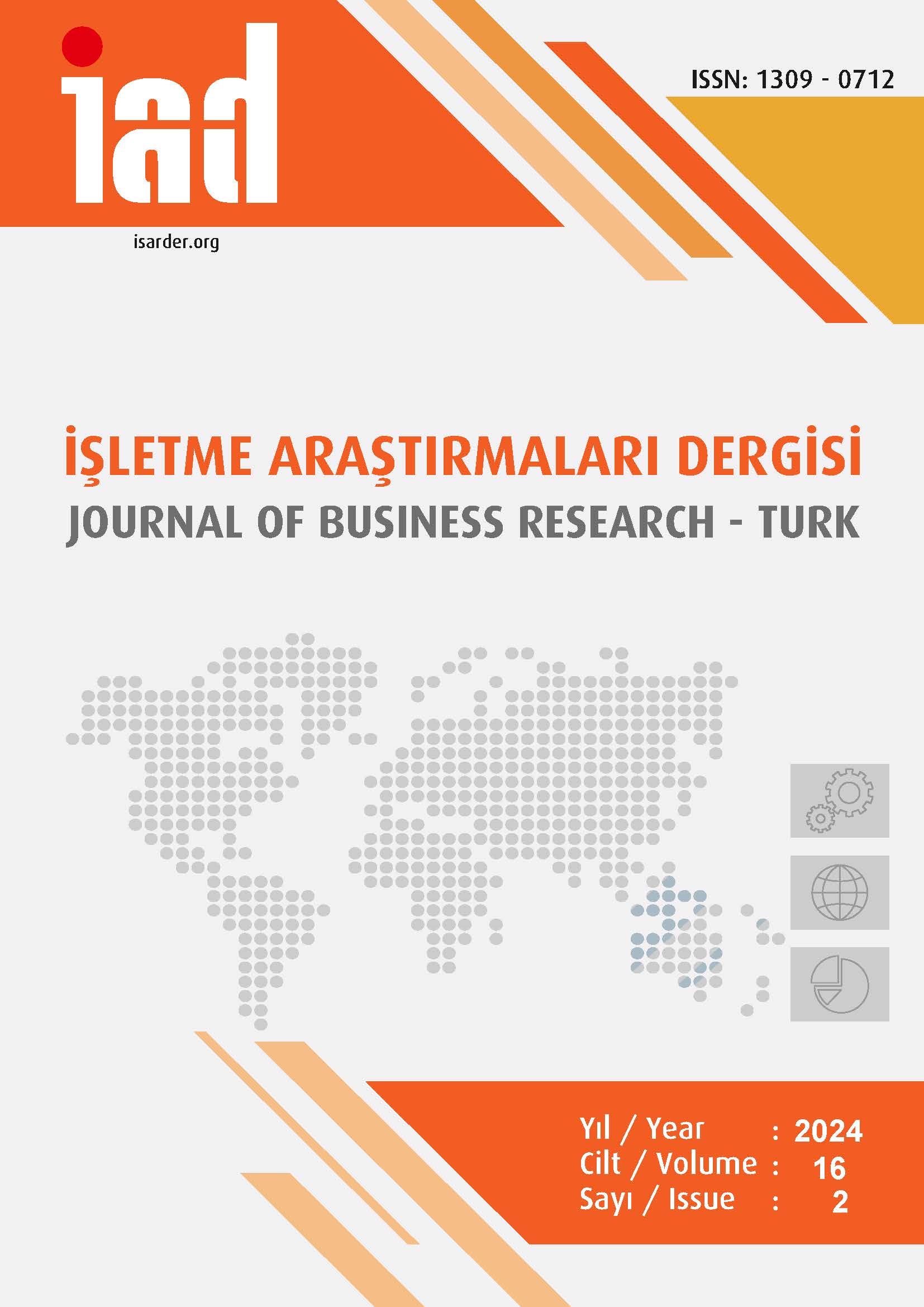The Mediating Role of Organizational Climate in the Impact of Knowledge Sharing on Organizational Creativity
DOI:
https://doi.org/10.20491/isarder.2024.1845Keywords:
Knowledge Sharing, Organizational CreativityAbstract
Purpose – Aim of this research is to determine mediating role of organizational climate in relationship between knowledge sharing and organizational creativity through structural equation modeling. Design/methodology/approach –In the study, organizational creativity is considered as the dependent variable, knowledge sharing as the independent variable, and organizational climate as the mediating variable, employing a relational survey model. The population consists of employees from service sector firms in Istanbul, with a sample of 587 employees who participated voluntarily. Face-to-face and online survey methods were used as data collection tools. The scales used for knowledge sharing, organizational creativity, and organizational climate were in a five-point Likert format and had undergone validity and reliability testing. Explanatory Factor Analysis (EFA) was applied to analyze the obtained data, revealing that the factors had significant effects, and the scales were used in their original form without removing any items. Subsequently, the suitability of the goodness-of-fit results was determined using Confirmatory Factor Analysis (CFA), confirming the factor structure for all scales. Structural Equation Modeling (SEM) was employed to identify the relationships within the model, and Bootstrap analysis was used to examine the significance of the mediating role of organizational climate between knowledge sharing and organizational creativity. Findings – In the study, Structural Equation Modeling (SEM) was first applied to examine the impact of knowledge sharing on organizational creativity. The results indicated that knowledge sharing had a statistically significant positive effect on organizational creativity, with an increase of 0.586 units. Based on this finding, SEM was applied again to assess the mediating role of organizational climate. The results showed that, as expected, the direct effect of knowledge sharing on organizational creativity decreased to 0.521 units, and the mediating role of organizational climate in the relationship between knowledge sharing and organizational creativity was found to be significant. Furthermore, knowledge sharing had a statistically significant positive effect on organizational climate (0.413 units), and organizational climate had a statistically significant positive effect on organizational creativity (0.550 units). Discussion – Knowledge sharing is effective in enhancing and directing organizational creativity. The characteristics, behaviors, and practices of the organizational climate are crucial in the context of their capacity to influence the process of knowledge sharing and creativity. This study found that knowledge sharing has a positive impact on both organizational creativity and organizational climate, and that organizational climate plays a mediating role in the relationship between knowledge sharing and organizational creativity. In light of our findings, encouraging knowledge sharing in organizations, developing methods to ensure that every employee can access information, establishing knowledge democracy, and increasing open communication channels will positively affect the organizational climate and contribute to organizational creativity. Given the limited research on these variables, it is suggested that the study could be expanded to different sectors with various samples.
Downloads
Published
How to Cite
Issue
Section
License

This work is licensed under a Creative Commons Attribution-NoDerivatives 4.0 International License.





